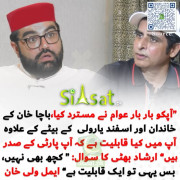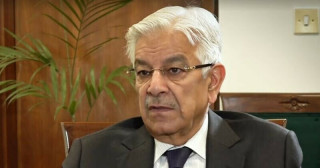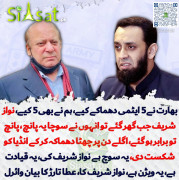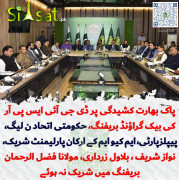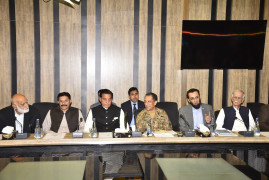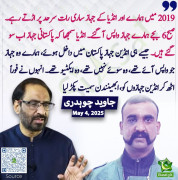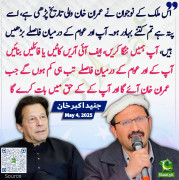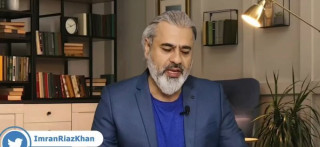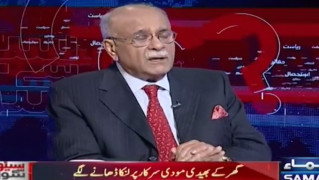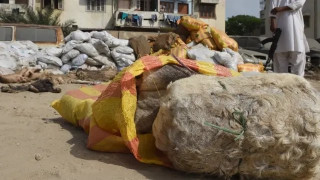hans
Banned
Written by Mohammad Hanif
http://www.openthemagazine.com/article/international/pakistan-s-general-problem
Part of the Article is been published.
The Pakistan Army’s biggest folly has been that under Zia it started outsourcing its basic job—soldiering—to these freelance militants. By blurring the line between a professional soldier—who, at least in theory, is always required to obey his officer, who in turn is governed by a set of laws—and a mujahid, who can pick and choose his cause and his commander depending on his mood, the Pakistan Army has caused immense confusion in its own ranks.
Our soldiers are taught to shout Allah-o-Akbar when mocking an attack. In real life, they are ambushed by enemies who shout Allah-o-Akbar even louder. Can we blame them if they dither in their response? When the Pakistan Navy’s main aviation base in Karachi, PNS Mehran, was attacked, Navy Chief Admiral Nauman Bashir told us that the attackers were ‘very well trained’. We weren’t sure if he was giving us a lazy excuse or admiring the creation of his institution. When naval officials told journalists that the attackers were ‘as good as our own commandoes’ were they giving themselves a backhanded compliment?
In the wake of the attacks on PNS Mehran in Karachi, some TV channels have pulled out an old war anthem sung by late Madam Noor Jehan and have started to play it in the backdrop of images of young, hopeful faces of slain officers and men. Written by the legendary teacher and poet Sufi Tabassum, the anthem carries a clear and stark warning: Aiay puttar hatantay nahin wickday, na labhdi phir bazaar kuray (You can’t buy these brave sons from shops, don’t go looking for them in bazaars).
The Pakistan Army, throughout its history, has refused to take advice from politicians as well as thinking professionals from its own ranks. It has never listened to historians and sometimes ignored even the esteemed religious scholars it frequently uses to whip up public sentiments for its dirty wars. But the biggest strategic mistake it has made is that it has not even taken advice from the late Madam Noor Jehan, one of the Army’s most ardent fans in Pakistan’s history. You can probably ignore Dr Eqbal Ahmed’s advice and survive in this country but you ignore Madam at your own peril. Since the Pakistan Army’s high command is dominated by Punjabi-speaking generals, it’s difficult to fathom what it is about this advice that they didn’t understand. Any which way you translate it, the message is loud and clear. And lyrical: soldiers are not to be bought and sold like a commodity. “Na awaian takran maar kuray” (That search is futile, like butting your head against a brick wall), Noor Jehan goes on to rhapsodise.
For decades, the Army has not only shopped for these private puttars in the bazaars, it also set up factories to manufacture them. It raised whole armies of them. When you raise Lashkar-e-Taiba, Jaish Mohammed, Sipahe Sahaba, Sipahe Mohammed, Lashker Jhangvi, Al- Badar Mujahideen, others encouraged by the thriving market place will go ahead and start outfits like Anjuman Tahuffuze Khatame Nabuwat and Anjuman Tahuffuze Namoos-e-Aiyasha.
As if the Army’s sprawling shopping mall of private puttars in Pakistan wasn’t enough, it actively encouraged import and export of these commodities, even branched out into providing rest and recreation facilities for the ones who wanted a break. The outsourcing of Pakistan’s military strategy has reached a point where mujahids have their own mujahids to do their job, and inevitably at the end of the supply chain are those faceless and poor teenagers with explosives strapped to their torsos regularly marched out to blow up other poor kids.
Two days before the Americans killed Osama bin Laden and took away his bullet-riddled body, General Kiyani addressed Army cadets at Kakul. After declaring a victory of sorts over the militants, he gave our nation a stark choice. And before the nation could even begin to weigh its pros and cons, he went ahead and decided for them: we shall never bargain our honour for prosperity. As things stand, most people in Pakistan have neither honour nor prosperity and will easily settle for their little world not blowing up every day.
The question people really want to ask General Kiyani is that if he and his Army officer colleagues can have both honour and prosperity, why can’t we the people have a tiny bit of both?
http://www.openthemagazine.com/article/international/pakistan-s-general-problem
Part of the Article is been published.
The Pakistan Army’s biggest folly has been that under Zia it started outsourcing its basic job—soldiering—to these freelance militants. By blurring the line between a professional soldier—who, at least in theory, is always required to obey his officer, who in turn is governed by a set of laws—and a mujahid, who can pick and choose his cause and his commander depending on his mood, the Pakistan Army has caused immense confusion in its own ranks.
Our soldiers are taught to shout Allah-o-Akbar when mocking an attack. In real life, they are ambushed by enemies who shout Allah-o-Akbar even louder. Can we blame them if they dither in their response? When the Pakistan Navy’s main aviation base in Karachi, PNS Mehran, was attacked, Navy Chief Admiral Nauman Bashir told us that the attackers were ‘very well trained’. We weren’t sure if he was giving us a lazy excuse or admiring the creation of his institution. When naval officials told journalists that the attackers were ‘as good as our own commandoes’ were they giving themselves a backhanded compliment?
In the wake of the attacks on PNS Mehran in Karachi, some TV channels have pulled out an old war anthem sung by late Madam Noor Jehan and have started to play it in the backdrop of images of young, hopeful faces of slain officers and men. Written by the legendary teacher and poet Sufi Tabassum, the anthem carries a clear and stark warning: Aiay puttar hatantay nahin wickday, na labhdi phir bazaar kuray (You can’t buy these brave sons from shops, don’t go looking for them in bazaars).
The Pakistan Army, throughout its history, has refused to take advice from politicians as well as thinking professionals from its own ranks. It has never listened to historians and sometimes ignored even the esteemed religious scholars it frequently uses to whip up public sentiments for its dirty wars. But the biggest strategic mistake it has made is that it has not even taken advice from the late Madam Noor Jehan, one of the Army’s most ardent fans in Pakistan’s history. You can probably ignore Dr Eqbal Ahmed’s advice and survive in this country but you ignore Madam at your own peril. Since the Pakistan Army’s high command is dominated by Punjabi-speaking generals, it’s difficult to fathom what it is about this advice that they didn’t understand. Any which way you translate it, the message is loud and clear. And lyrical: soldiers are not to be bought and sold like a commodity. “Na awaian takran maar kuray” (That search is futile, like butting your head against a brick wall), Noor Jehan goes on to rhapsodise.
For decades, the Army has not only shopped for these private puttars in the bazaars, it also set up factories to manufacture them. It raised whole armies of them. When you raise Lashkar-e-Taiba, Jaish Mohammed, Sipahe Sahaba, Sipahe Mohammed, Lashker Jhangvi, Al- Badar Mujahideen, others encouraged by the thriving market place will go ahead and start outfits like Anjuman Tahuffuze Khatame Nabuwat and Anjuman Tahuffuze Namoos-e-Aiyasha.
As if the Army’s sprawling shopping mall of private puttars in Pakistan wasn’t enough, it actively encouraged import and export of these commodities, even branched out into providing rest and recreation facilities for the ones who wanted a break. The outsourcing of Pakistan’s military strategy has reached a point where mujahids have their own mujahids to do their job, and inevitably at the end of the supply chain are those faceless and poor teenagers with explosives strapped to their torsos regularly marched out to blow up other poor kids.
Two days before the Americans killed Osama bin Laden and took away his bullet-riddled body, General Kiyani addressed Army cadets at Kakul. After declaring a victory of sorts over the militants, he gave our nation a stark choice. And before the nation could even begin to weigh its pros and cons, he went ahead and decided for them: we shall never bargain our honour for prosperity. As things stand, most people in Pakistan have neither honour nor prosperity and will easily settle for their little world not blowing up every day.
The question people really want to ask General Kiyani is that if he and his Army officer colleagues can have both honour and prosperity, why can’t we the people have a tiny bit of both?


